Pteris vittata L.
| Etymology | Genus | Fern |
|---|---|---|
| Species | Striped lengthwise | |
| Family | Pteridaceae | |
| Synonyms | - | |
| Common Names | Chinese Brake, Ladder Brake, Chinese Ladder Brake, Chinese Ladder Fern | |
| Status | Cryptogenic | |
| Form | Herb | |
| Native Distribution | Tropical & Subtropical Old World to South West Pacific | |
Diagnostics:
A common fern that can be found growing from drains, buildings and off other concrete cracks. The fronds are pinnately compounded, with simple leaflets which are arranged alternately or subopposite. Each leaflet is elongated but usually wider and cordate at the base.
Interesting Facts:
Pteris vittata is well known for its ability to store extremely high levels of toxic arsenic from the soil, making it useful for phytoremediation. When absorbed from the roots, the chemical is transported to the fronds where it is stored in the vacuoles, granting its high tolerance. This was possible through a gene, PvACR3, which encodes an arsenic transporter protein (Indriolo et al., 2010).
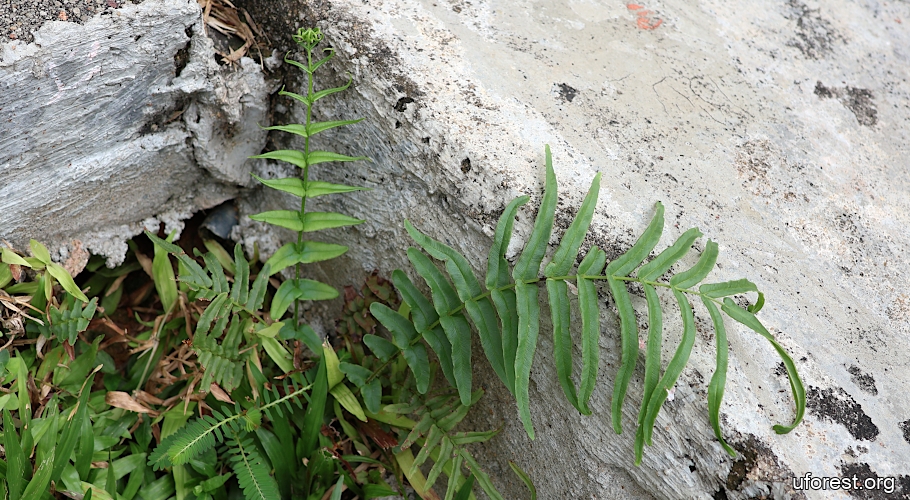
Growing from cracks of a concrete pavement.
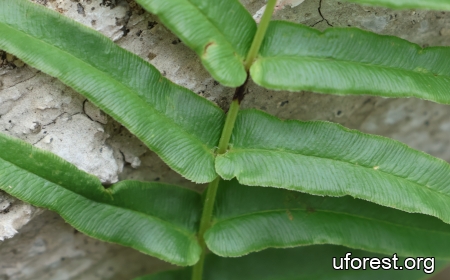
Cordate base of leaflet, subopposite arranged.
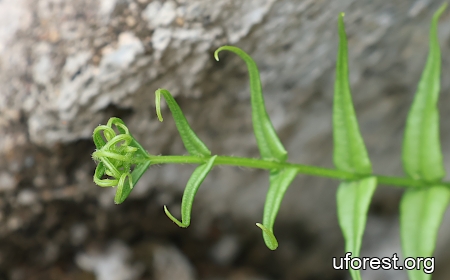
Young leaflet.
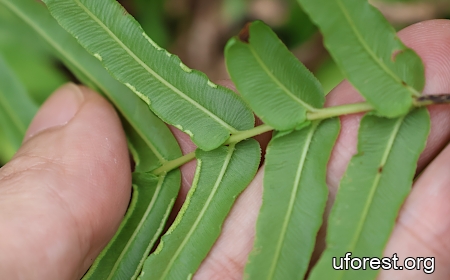
Leaflet underside.
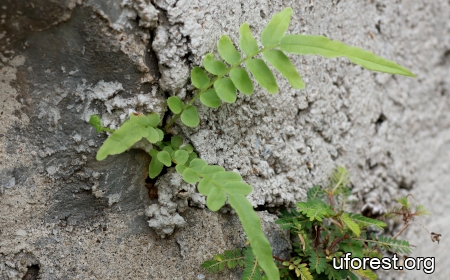
Young plant.
References
Indriolo, E., Na, G., Ellis, D., Salt, D. E., & Banks, J. A. (2010). A vacuolar arsenite transporter necessary for arsenic tolerance in the arsenic hyperaccumulating fern Pteris vittata is missing in flowering plants. The Plant Cell, 22(6), 2045–2057.
Author: Siyang
Posted: 2025-10-23 / Modified: 2025-10-24